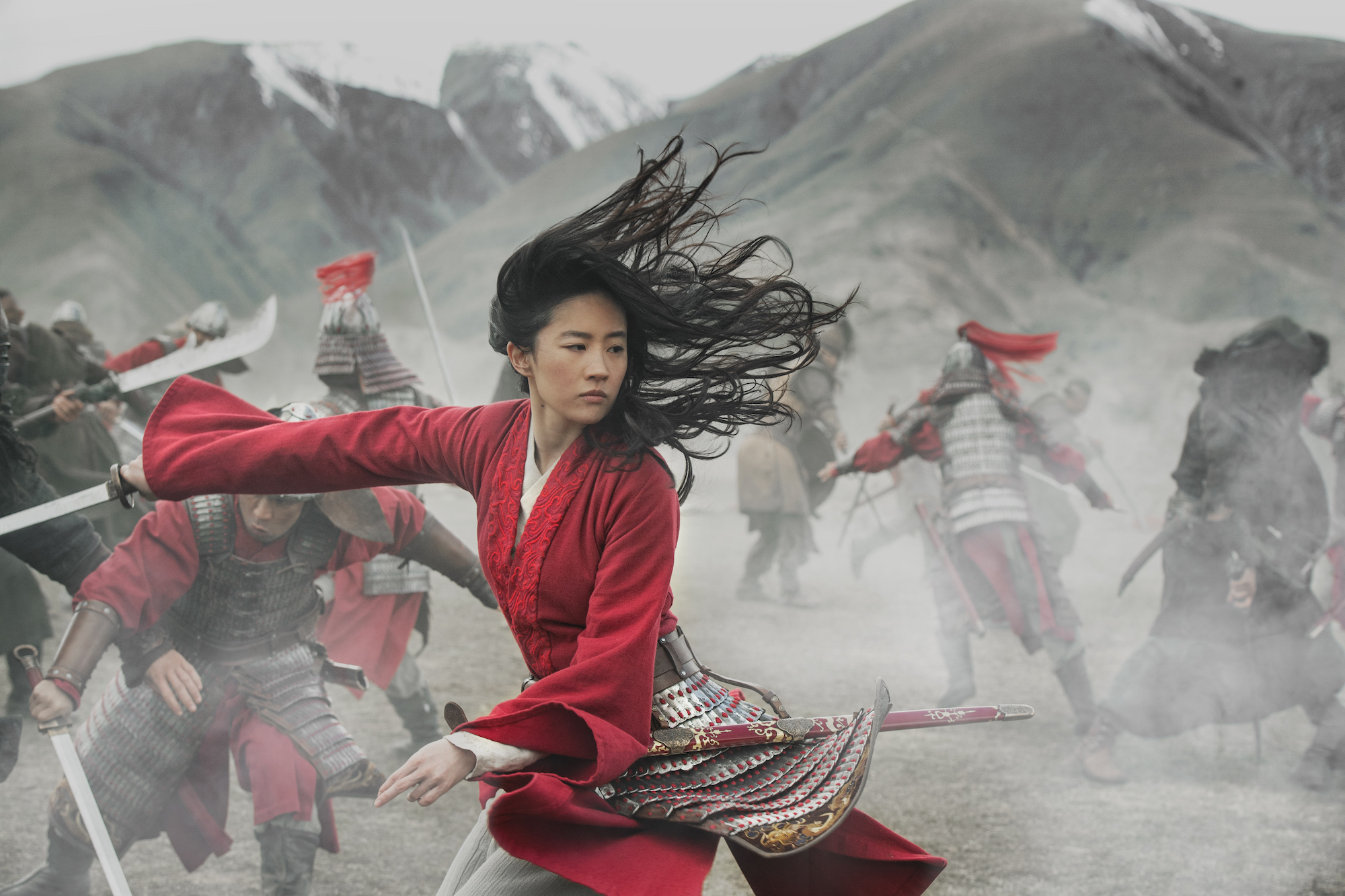What to Watch Verdict
Disney's live-action Mulan has a strong premise that's marred by too many screenwriters. Still though, most will find something to enjoy.
Pros
- +
⛩️Visually stunning.
- +
⛩️Exceptional action sequences throughout.
- +
⛩️Solid performances from the cast.
Cons
- -
⛩️Too many screenwriters equated to a weak script.
- -
⛩️Some changes are not to the benefit of the story.
Mulan — first lost in delay purgatory then turned over to the Disney+ streaming service (where subscribers still have to pay a premium fee to view the film before December) — is one of the many pseudo-casualties of the pandemic-induced theatrical slump of 2020.
The narrative skeleton is the same as Disney’s animated feature of 1998: headstrong young Mulan disguises herself as a man and answers the conscription call on behalf of her family, fighting in the Imperial Army to defend China from northern invaders.
- HOW TO STREAM MULAN: Get it on Disney+ Premier Access
The $200 million-plus budget (the priciest film to date helmed by a woman director) is on full display in its expansive cultural locales and spellbinding special effects. From the emperor’s golden palace to a modest matchmaker’s parlor, the film indulges in both scope and detail under the lens gaze of cinematographer Mandy Walker. A dazzling color palette is a treat to the eye in costume designer Bina Daigler’s bright and vivid apparel of Mulan’s village and in the immense architecture of the Imperial City. Wuxia-steeped aerial choreography makes for stunning action sequences. Visually, the film is a delight.
While having a woman in the director’s chair for such a massive property is cause for celebration, Niki Caro’s feature is ultimately muddled by no fewer than four screenwriters in the kitchen. Despite the 115-minute runtime, there is little screen time dedicated to bringing depth to any characters beyond the titular heroine herself (played by Yifei Liu) and her parallel foe, sorceress Xianniang (Gong Li). Mulan is first shown as a carefree (her mother might call her careless) young girl who displays an early mastery of her Qi — and energetic force that enables her acrobatic and sword fighting skills to shine. Her father, war veteran Hua Zhou (Tzi Ma), is loving but ultimately encourages his eldest daughter to suppress her spirited nature in favor of domestic servility — the only way for a woman to bring true honor to her family. Pei-Pei Cheng as the Matchmaker underlines Mulan’s traditionally arranged path (and her resistance to it) in comical fashion.
Following the Emperor’s decree that one man from every family shall fight in the Imperial Army, she sneaks away in the night with her father’s sword and armor and arrives at the training camp to serve under the command of Commander Tung (Donnie Yen). Therein is a lack of connection between her and everyone she trains with, despite the “I’ll Make A Man Out of You”-revised training montage that implies some camaraderie is supposed to have occurred. A cadre of solid actors including Yosan An, Ron Yuan, Doua Moua, and Jimmy Wong do what they can with the wooden script, but beyond a few lingering glances and routine night-before-battle campfire scene, platonic intimacy is threadbare and so the stakes are fairly low.
In explaining the plot against China, an over-talkative script dilutes what could have been formidable villains in the Rouran warriors and their leader, Bori Kahn (Jason Scott Lee); their scenes are among the slowest of the film entire. However, their witch-like ally Xianniang shares a “join the Dark Side” moment with Mulan that reveals the most about each character in the shortest amount of time. Mulan’s subsequent moment of self-acceptance is the story’s most compelling character scene and adds substance beneath all the gloss. Yifei carries with her both a bold presence and an internal vulnerability that commands the screen; this ain’t your mama’s princess movie.
Mulan’s femme power is treated with care and she learns that she cannot fully tap into it until she embraces her identity. Additionally, a rare cinematic moment occurs in which several men vocally support a woman in a brave but exposed position within a male-dominated world. If the #MeToo connection wasn’t apparent enough, “I believe Hua Mulan” makes it crystal clear. Make no mistake, though, she does not need a man to save China, nor to become a complete person. Her happiness and her glory are all her own, something that will resonate with any young woman watching. Largely untethered by the canon of its cartoon predecessor, Mulan is a visually stunning epic that nonetheless lacks the strong arcs and inter-connections needed to drive it. Without the emotional resonance coming from the players involved, the result is a pretty but blurred reflection of that girl we saw in 1998.
Anya Stanley is a FANGORIA columnist, published author, film critic, and staunch Halloween 6 apologist. Her work can be found at AV Club, Crooked Marquee, Birth. Movies. Death., and her website and on Twitter.












